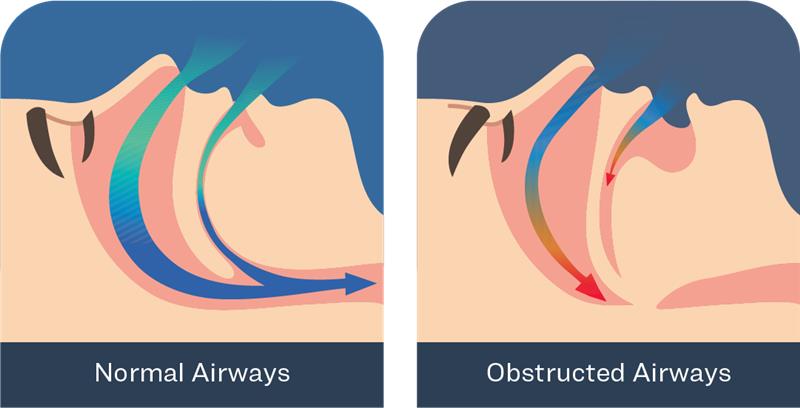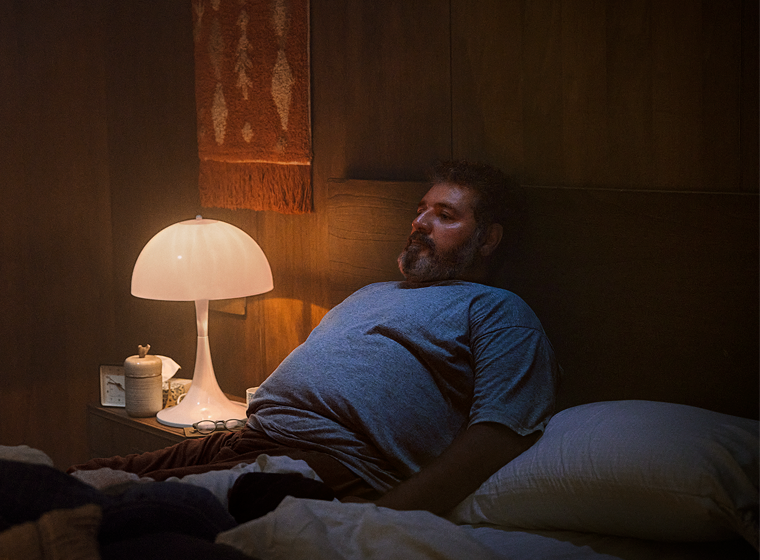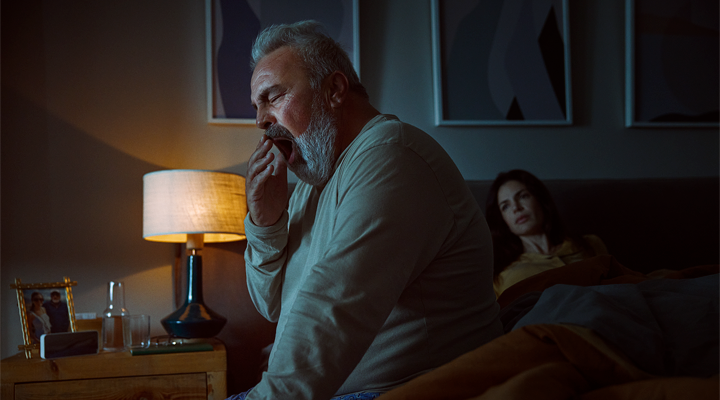
What is OSA?
It may be holding you back from getting sleep with fewer breathing interruptions
What is OSA?
It may be holding you back from getting sleep with fewer breathing interruptions

Obstructive sleep apnea (OSA) is a chronic condition in which the throat muscles relax during sleep and the airway may become partially or fully blocked. There may be periods of choking or gasping for air while sleeping without your knowing.
If you have OSA, breathing may be fully or partially blocked at times during sleep, so it’s possible you may not be getting the oxygen you need.

Image depicting an open airway and what normal oxygen flow during sleep looks like compared to what oxygen flow during sleep looks like when someone has a fully or partially blocked airway due to obstructive sleep apnea.
Carrying excess fat in the neck may cause the upper airway to narrow, which may lead to breathing blockages that happen during sleep.

There are different degrees of severity for OSA. If your breathing is interrupted 15-29 times an hour while sleeping, that may indicate moderate OSA, while 30 or more times an hour may indicate severe OSA.

Don’t wait—talk to your doctor about OSA.
Untreated OSA may continue to cause breathing disruptions during sleep.
Some OSA risk factors include:
- Being an adult man
- While less common, women can also be at risk
- Obesity
- Having a thicker neck (greater than 17 inches for men and 16 inches for women)
- Age (people over the age of 50 are more at risk)
- A family history of OSA
- Nighttime nasal congestion


In the US, moderate-to-severe OSA affects approximately 24 million adults. Many are overweight or living with obesity, and most cases remain undiagnosed and untreated.
Identifying OSA
If you have OSA, you may experience:

Loud snoring

Choking and/or gasping for air while sleeping without your knowing

Daytime sleepiness

Fatigue

Irritability

Concentration and/or memory problems

Unrefreshing sleep

Morning headaches
If you’re the partner or caregiver of someone who may have OSA, have you noticed or heard them mention any of the above symptoms?
It may be time to talk to a doctor about OSA.


Ask your doctor about potential symptoms and getting a sleep test for OSA.
Answer a few questions to help identify potential OSA symptoms.
